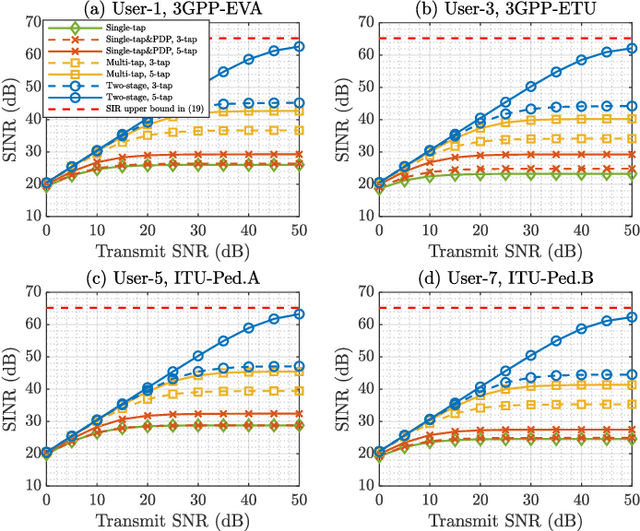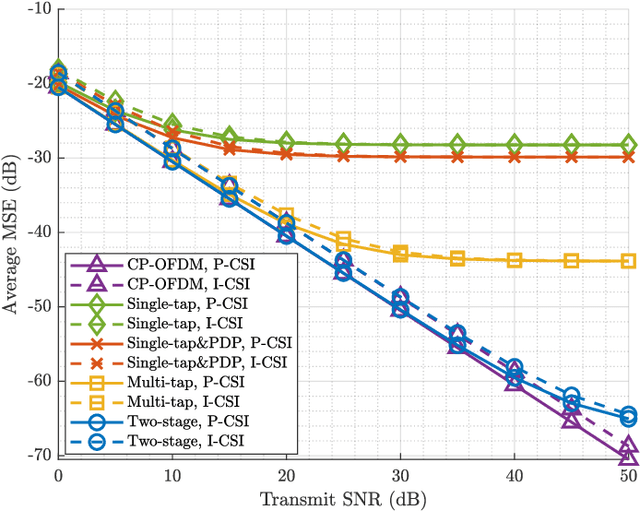Yuhao Qi
Downlink Precoding for Cell-free FBMC/OQAM Systems With Asynchronous Reception
Jul 13, 2023



Abstract:In this work, an efficient precoding design scheme is proposed for downlink cell-free distributed massive multiple-input multiple-output (DM-MIMO) filter bank multi-carrier (FBMC) systems with asynchronous reception and highly frequency selectivity. The proposed scheme includes a multiple interpolation structure to eliminate the impact of response difference we recently discovered, which has better performance in highly frequency-selective channels. Besides, we also consider the phase shift in asynchronous reception and introduce a phase compensation in the design process. The phase compensation also benefits from the multiple interpolation structure and better adapts to asynchronous reception. Based on the proposed scheme, we theoretically analyze its ergodic achievable rate performance and derive a closed-form expression. Simulation results show that the derived expression can accurately characterize the rate performance, and FBMC with the proposed scheme outperforms orthogonal frequency-division multiplexing (OFDM) in the asynchronous scenario.
A Novel Two-stage Design Scheme of Equalizers for Uplink FBMC/OQAM-based Massive MIMO Systems
Dec 04, 2021



Abstract:The self-equalization property has raised great concern in the combination of offset-quadratic-amplitude-modulation-based filter bank multi-carrier (FBMC/OQAM) and massive multiple-input multiple-output (MIMO) system, which enables to decrease the interference brought by the highly frequency-selective channels as the number of base station (BS) antennas increases. However, existing works show that there remains residual interference after single-tap equalization even with infinite number of BS antennas, leading to a limitation of achievable signal-to-interference-plus-noise ratio (SINR) performance. In this paper, we propose a two-stage design scheme of equalizers to remove the above limitation. In the first stage, we design high-rate equalizers working before FBMC demodulation to avoid the potential loss of channel information obtained at the BS. In the second stage, we transform the high-rate equalizers into the low-rate equalizers after FBMC demodulation to reduce the implementation complexity. Compared with prior works, the proposed scheme has affordable complexity under massive MIMO and only requires instantaneous channel state information (CSI) without statistical CSI and additional equalizers. Simulation results show that the scheme can bring improved SINR performance. Moreover, even with finite number of BS antennas, the interference brought by the channels can be almost eliminated.
 Add to Chrome
Add to Chrome Add to Firefox
Add to Firefox Add to Edge
Add to Edge